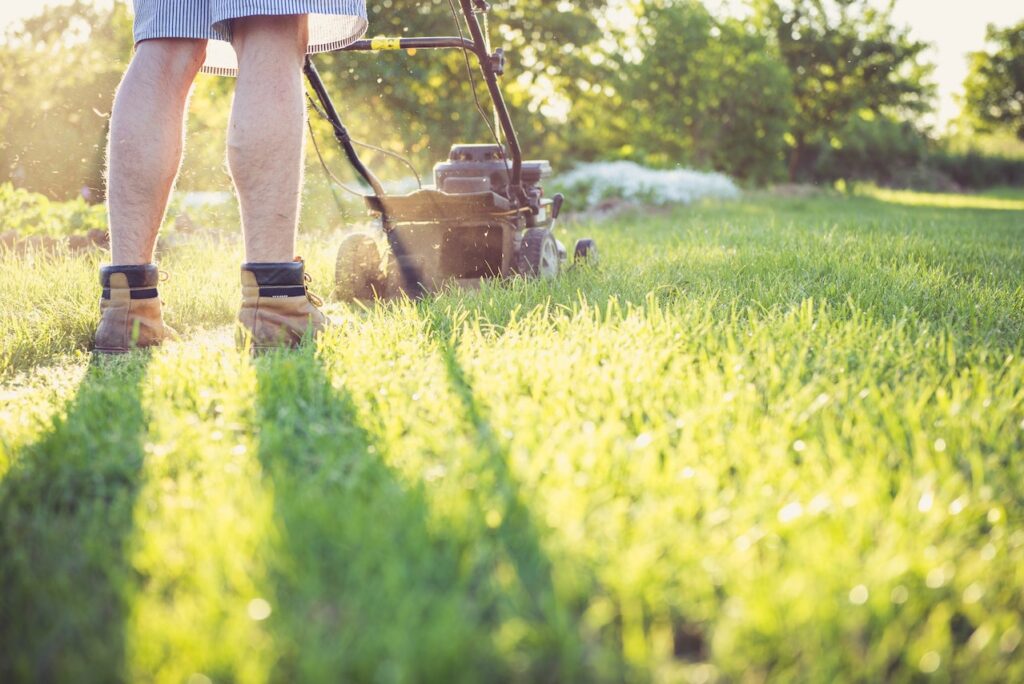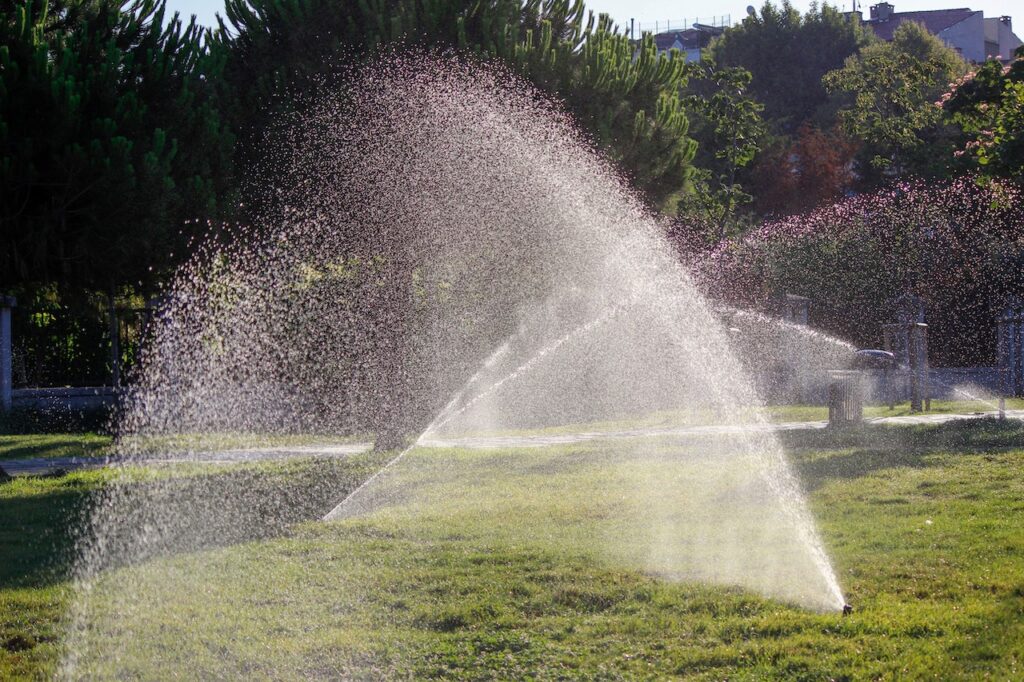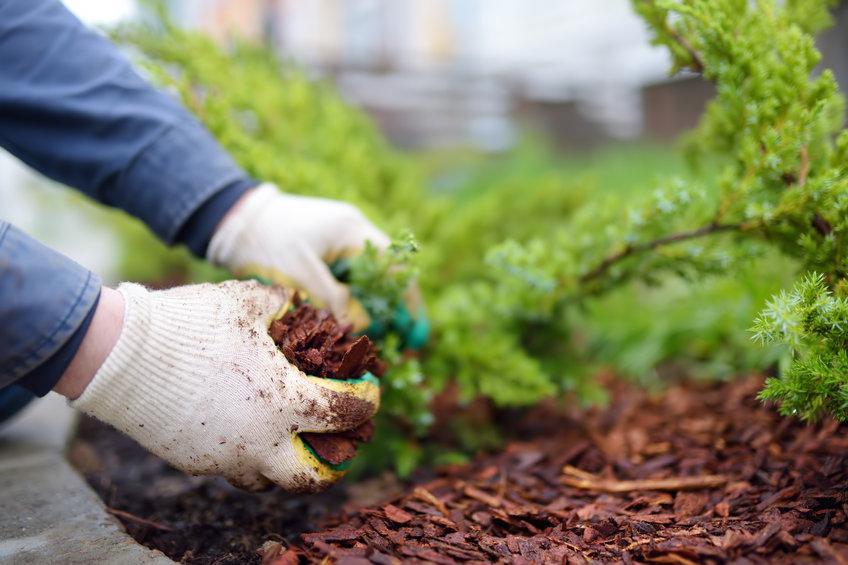As summer begins to wind down, Georgia homeowners know that the relentless heat and humidity can still take a toll on their lawns. While the scorching southern sun has likely pushed your grass to its limits, it’s not too late to give your lawn the care it needs to thrive through the end of the season. At Mansell Landscape, we know landscaping and lawn care from the inside out. Plus, we love to share our knowledge with other residents looking to improve their homes! So, here are some essential last-minute summer lawn care tips to help your Georgia greenery stay healthy during the transitional season.

Why Do You Need End of Summer Lawn Care?
Late summer lawn care and maintenance in August is very important when it comes to preparing your lawn for transitioning out of Georgia’s intense summer heat. By the end of peak summer, your lawn has likely endured prolonged exposure to high temperatures, humidity, and potential drought conditions, which can weaken the grass and make it more susceptible to stress, pests, and disease. By implementing proper care techniques—such as adjusting mowing practices, watering wisely, and addressing any pest or weed issues—you help fortify the lawn’s health, allowing it to recover and strengthen before the onset of fall. This prep is crucial for ensuring your grass remains resilient and vibrant, laying the groundwork for a lush, healthy lawn as temperatures begin to cool.
Our Best Late Summer Lawn Care Practices:
Adjust Your Mowing Routine
Mowing is one of the most critical aspects of lawn care, especially during the hot summer months. Trimming your greenery can be one of the best ways to ensure it grows fast, but only if you do it right. As the end of summer approaches in Georgia, it’s important to adjust your mowing practices to help your lawn endure the varying degrees of heat.
- Raise Your Mower Blades: During late summer, raise the blades of your mower to leave the grass a bit taller so it can soak up more sun. Taller grass provides shade for the soil, which helps retain moisture and prevents the roots from drying out. In Georgia, keeping your grass at a height of about 3 to 4 inches is ideal for most types of lawns.
- Mow Less Frequently: As dry, hot temperatures start to cool down, your grass may not grow as quickly. Instead of sticking to a rigid mowing schedule, mow only when necessary. Cutting the grass too short or too often can stress it out, making it more susceptible to heat damage, bugs, and weeds.

Make a Watering Schedule
Watering your lawn in Georgia’s summer heat requires a delicate balance. Overwatering can lead to shallow roots and disease, while underwatering can cause the grass to wither and die. To make it easy, we’ve developed an easy schedule to follow for all your watering needs:
- Water Early in the Morning: The best time to water your lawn is early in the morning, ideally between 6 a.m. and 10 a.m. This allows the grass to absorb the water before the sun gets too hot, reducing evaporation and ensuring that the moisture reaches the roots.
- Deep and Infrequent Watering: Instead of watering lightly daily, opt for deep, weekly watering sessions. This encourages the grass to develop deep roots, which are more resilient to drought and heat stress. Aim to provide your lawn with about 1 to 1.5 inches of water per week, either from natural rainfall or planned irrigation.
- Check for Dry Spots: As the summer winds down, take note of any dry or brown spots in your grass. These areas may need extra attention, such as spot watering or reseeding.
Fertilize with Care
Fertilizing your lawn at the end of summer can help it recover from the stresses of the season and prepare for the cooler months ahead.
- Choose a Slow-Release Fertilizer: Opt for a slow-release fertilizer that provides a steady supply of nutrients over time. This will help your grass grow strong roots without causing a sudden burst of growth, which can be harmful in the heat.
- Avoid Over-Fertilizing: While it might be tempting to apply extra fertilizer to give your lawn a boost, over-fertilizing can do more harm than good. Excess fertilizer can actually burn your grass and lead to nutrient imbalances. Follow the recommended application rates for your specific type of grass according to your region.
- Consider a Soil Test: If you’re unsure about your lawn’s nutrient needs, consider getting a soil test. This will help you better understand what your lawn requires and help you choose the right fertilizer.
Combat Weeds and Pests
Weeds and pests can be particularly troublesome during the late summer months in Georgia. By taking steps to manage them now will help your lawn stay healthy and weed-free.
- Spot Treat Weeds: Late summer is an excellent time to target weeds, especially stubborn varieties like crabgrass and dandelions. Use a selective herbicide to spot-treat problem areas without damaging the surrounding grass.
- Watch for Pests: Common lawn pests in Georgia, such as chinch bugs, grubs, and armyworms, can cause significant damage if left unchecked. Keep an eye out for signs of pest activity, such as brown patches or chewed grass blades, and treat infestations promptly with appropriate insecticides.
- Aerate the Soil: Aerating your lawn can help alleviate soil compaction and improve air circulation, water absorption, and nutrient uptake. Late summer is an ideal time to aerate your lawn, especially if it has seen heavy foot traffic or shows signs of stress.

Prepare for Fall
As summer comes to a close, it’s essential to start thinking ahead to fall lawn care. Preparing your lawn now will set the stage for a healthy, vibrant landscape in the cooler months.
- Overseed Thin Areas: If you notice thin or bare spots in your lawn, consider overseeding to thicken the grass and crowd out weeds. Choose a grass seed that is well-suited to Georgia’s climate, such as Bermuda, Zoysia, or Tall Fescue, and apply it according to the manufacturer’s instructions.
- Apply a Pre-Emergent Herbicide: To prevent winter weeds from taking hold, apply a pre-emergent herbicide in late summer or early fall. This will help keep your lawn free of pesky weeds like annual bluegrass and chickweed.
- Mulch Your Lawn: Mulching with grass clippings or compost can help retain moisture, reduce soil erosion, and add nutrients back into the soil. It’s an easy way to give your lawn a little extra care before fall arrives.
Keep Up with Regular Maintenance
Even as summer ends, regular lawn maintenance is crucial to keeping your Georgia greenery in top shape. Continue to monitor your lawn for any signs of stress, disease, or pest activity, and address issues promptly. By staying on top of your lawn care routine, you’ll ensure that your yard remains healthy and attractive throughout the year!

Need Late Summer Lawn Care? Choose Mansell Landscape Management.
With the end of the season just around the corner, it’s important to come up with a plan to prepare your lawn for the cooler season. With a steady care plan, you can maintain a lush, healthy lawn that enhances the beauty of your home. Remember, each lawn is unique, so it might take some time to figure out exactly what works best for your specific conditions. Stay patient and consistent with your care; you can be sure your lawn will reward you through this transitional season!
Caring for your lawn in Georgia’s challenging climate can be a daunting task, especially as the seasons change. At Mansell Landscape Management, we know landscape from the inside out. Our formal background is in landscape architecture and horticulture, so we understand the landscape from a multi-dimensional perspective. With over 25 years of experience in the local landscaping industry, Mansell Landscape understands the unique needs of Georgia greenery and offers a wide range of services to keep your lawn looking its best.
Call us at (770) 517-0555 and transform your yard today!
